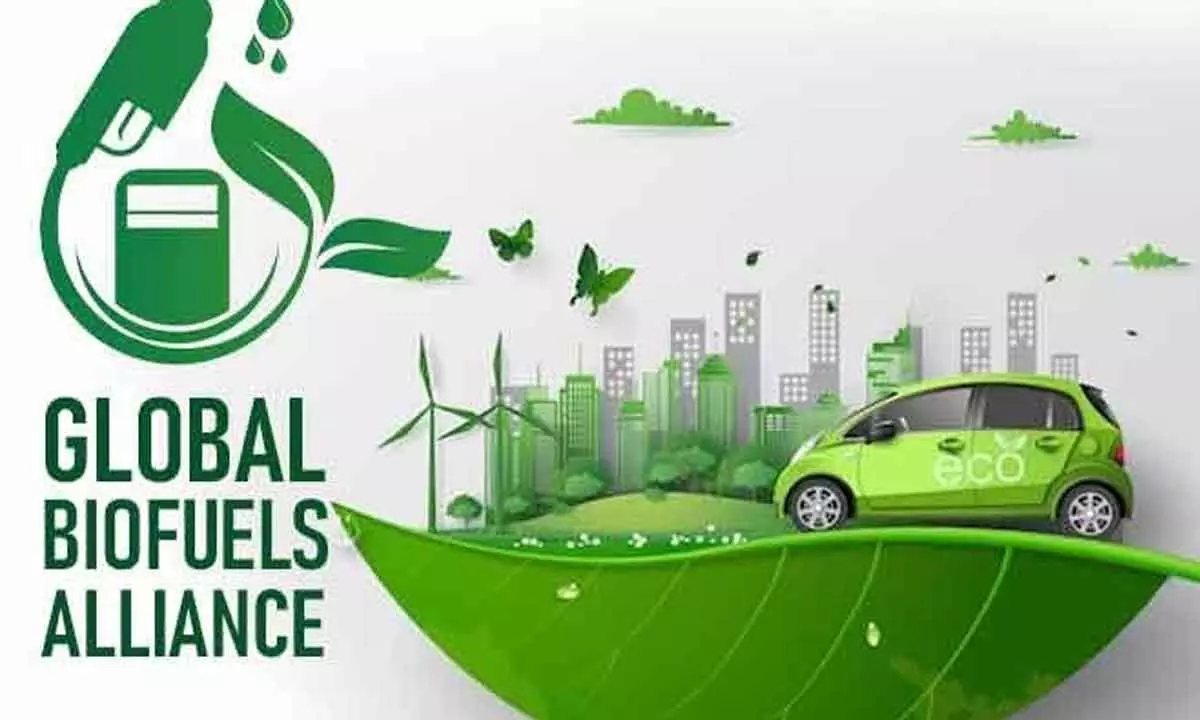Global Biofuels Alliance can help reduce carbon emissions
image for illustrative purpose

There was much to consider at the conclusion of the G20 summit in New Delhi last weekend, including the issuance of a consensus declaration as well as an announcement of the launch of an India –Middle East - Europe economic corridor. In all this, another significant event perhaps did not get the attention it deserved – the new Global Biofuels Alliance (GBA). The co-founders of this initiative are India, the U.S. and Brazil but another six countries have joined up while 12 international organisations are also part of the group.
The alliance is likely to give an impetus to a segment of renewable energy that has not been given much attention so far. Bringing together countries and agencies involved in its development will definitely push growth of this sustainable energy solution.
Though the alliance was launched at the G20, all group members are not part of it, indicating it is set to become a broader organisation for countries interested in developing this renewable energy resource.
As of now, the GBA members include Argentina, Bangladesh, Mauritius, Italy, South Africa and the United Arab Emirates while Canada and Singapore are observers. Among the leading multilateral institutions that have pledged to join the alliance are the World Bank, the Asian Development Bank and the International Energy Agency.
The objectives outlined so far suggest that GBA will provide a platform for countries to exchange best practices, accelerate technology development and bolster policy frameworks. Initially it would be important to actually define biofuels, as these are manufactured from different sources in different countries. Biofuels are made from biomass from plants or from agricultural, domestic or industrial bio-waste.
In India’s case, the biofuels being promoted are ethanol and biogas. The former is produced from either sugar or grain. Industry estimates are that the country has a sugar-based ethanol capacity of 8.5 billion litres and grain-based ethanol capacity of 8.5 billion litres, bringing the total to 12 billion litres. The grains used are mainly rice and maize.
Globally, however, the U.S. is the largest producer of ethanol accounting for 55 per cent of total output. Brazil is the second largest with 26 per cent, while the European Union and India come third and fourth with five and four per cent share of international production.
Though India is relatively low in terms of its global share in biofuel output, it has ambitious plans to increase production of ethanol which is currently being blended with petrol. The level of ethanol blended into petrol has risen from 1.5 per cent in 2013-14 to 10 per cent in 2022. The plan is to go up to 20 per cent ethanol-blended petrol by 2025. A pilot scheme with this level of ethanol in petrol was launched in some states earlier this year. According to officials, setting up of both traditional and second generation ethanol plants is being encouraged to meet the higher demand when the 20 per cent blending target will be achieved after two years.
Petroleum Minister Hardeep Puri has said the increased level of ethanol blending translates into foreign exchange savings of Rs. 41,500 crore, timely payment of Rs. 40,600 crore to farmers and a reduction of 27 lakh tonnes in carbon emissions. The fact is, India is importing over 85 per cent of its crude oil requirements and needs to reduce energy costs by expanding the scope of renewable energy.
As for biogas, it is another major biofuel that can contribute to reducing the country’s reliance on fossil fuels. It is made from various waste and biomass sources such as cattle dung, agricultural waste and organic waste from municipal solid waste and sewage treatment plants. This is converted into biogas and compressed to make compressed biogas (CBG). Currently, most CBG production is located in North America and Europe but this country is also planning to set up many more plants in the near future.
The Indian Biogas Association is upbeat about the future of this renewable energy source as it claims that the biofuel alliance can generate opportunities worth $500 billion over the next three years for G20 countries. In a study, it has estimated that for India alone, the opportunities could be of the order of 200 billion dollars considering the low investment and easy availability of raw materials.
The GBA is thus opening the doors for enhancing the mix of renewable energy sources in emerging economies. With developed countries like the U.S. on board, it will provide an opportunity for collaboration in projects that could conceivably reduce the cost of energy for the global South.
As more countries and organisations are showing interest in joining the alliance, it could become a springboard for rapid expansion of the biofuels sector. This, in turn, will have the long term impact of reducing carbon emissions and slowing down global warming.

